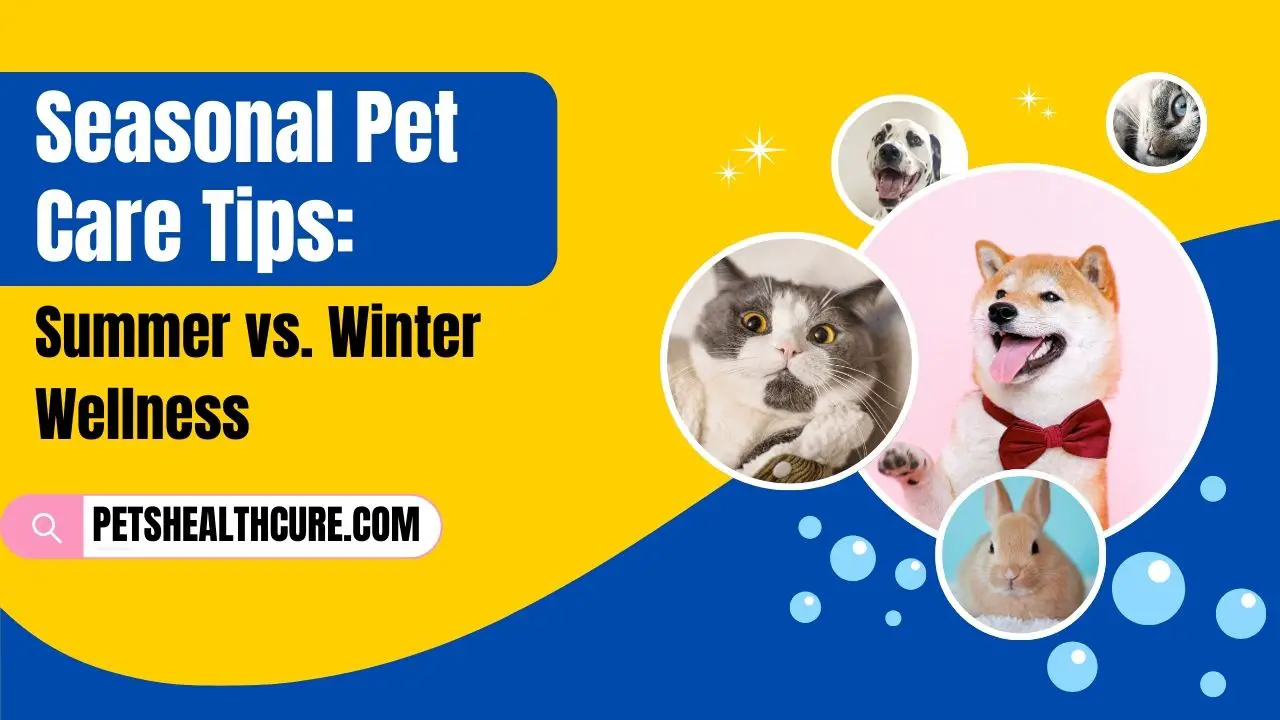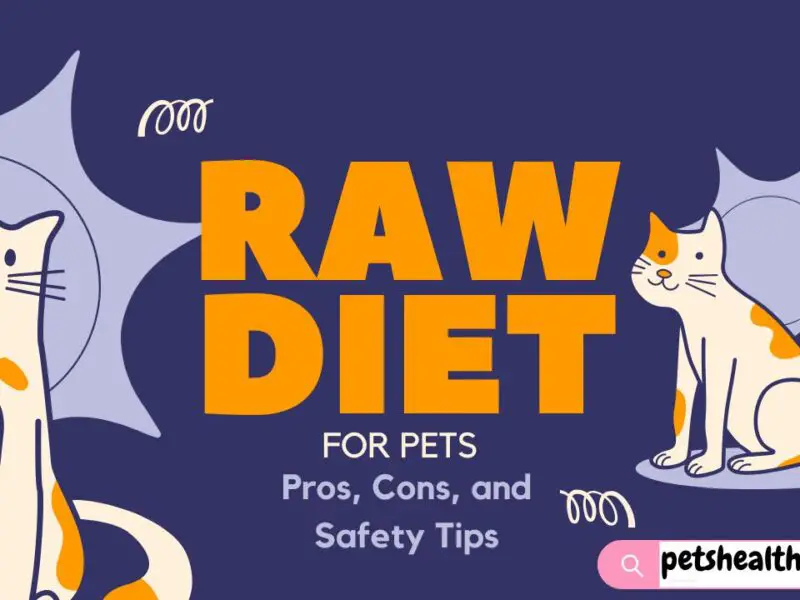Introduction
Pets bring joy and companionship to our lives, but their needs vary greatly with the changing seasons. “Seasonal Pet Care Tips: Summer vs. Winter Wellness” helps pet owners understand how to ensure their furry friends remain healthy and happy year-round. Different seasons pose unique challenges, and it is essential to adapt our care strategies to protect our pets from heat, cold, and seasonal hazards.
From staying hydrated in summer to preventing frostbite in winter, the journey of pet care requires knowledge and preparation. Let’s explore how you can provide the best seasonal care for your beloved pets.
Understanding Seasonal Challenges
Seasonal changes affect pets in numerous ways. Factors like temperature fluctuations, daylight hours, and humidity can influence their behavior, health, and overall comfort. While summer may bring the threat of dehydration and heatstroke, winter can introduce risks like frostbite and dry skin. Understanding these challenges is the first step toward effective pet care.
Summer Wellness for Pets
Keeping Pets Hydrated
Hydration is vital for pets, especially during hot summer months. Always ensure a constant supply of fresh, clean water. Adding electrolyte supplements for active pets can further prevent dehydration. Monitor their water intake to avoid heat-related complications.
Protecting Pets from Heatstroke
Heatstroke can be life-threatening. Limit outdoor activities during peak heat hours and provide shaded areas for rest. Signs of heatstroke include excessive panting, drooling, and lethargy. Immediate cooling and veterinary attention are critical.
Managing Pests and Parasites
Summer is peak season for fleas, ticks, and mosquitoes. Regular grooming, combined with vet-approved pest preventatives, is essential. Keep your surroundings clean and consider natural pest repellents for added protection.
Providing Proper Shelter and Shade
Outdoor pets need well-ventilated shelters. Use cooling mats or fans to maintain a comfortable temperature. Avoid metal surfaces in doghouses as they can overheat and cause burns.
Winter Wellness for Pets
Maintaining Body Temperature
Pets with short fur or low body fat are more susceptible to cold. Use sweaters or insulated blankets to help them stay warm indoors and outdoors.
Preventing Frostbite and Hypothermia
Frostbite commonly affects ears, tails, and paws. Limit outdoor exposure and inspect your pet regularly for signs of discoloration or swelling. For hypothermia, gradual warming and immediate vet assistance are essential.
Adjusting Diet for Winter Needs
Winter may increase caloric needs, particularly for outdoor pets. Opt for high-protein diets to sustain energy and promote warmth. Avoid overfeeding to prevent obesity.
Importance of Paw Care in Snow and Ice
Snow, ice, and road salt can damage your pet’s paws. Use pet-safe balms or booties to protect them. After walks, rinse paws to remove any harmful substances.
Exercise Needs Across Seasons
Encouraging Safe Summer Activities
Morning and evening walks are preferable to avoid peak heat. Engage in water-based activities like swimming to keep your pet active and cool.
Winter-Friendly Exercise Routines
Indoor games, obstacle courses, or short outdoor walks can fulfill your pet’s exercise needs during winter. Ensure they are bundled up and watch for icy patches.
Nutrition for Seasonal Changes
Adjusting Calorie Intake for Summer
Lower calorie diets may be necessary in summer to prevent weight gain due to reduced activity levels. Focus on light, nutrient-dense meals.
Incorporating Warming Foods in Winter
Include warming ingredients like chicken, oats, and sweet potatoes in winter diets. These foods help maintain body temperature and energy levels.
Grooming Considerations
Seasonal Grooming Tips for Summer
Frequent brushing helps remove loose fur and keeps your pet cool. Consider professional grooming to reduce shedding and improve comfort.
Winter Coat Maintenance
A healthy winter coat acts as insulation. Avoid over-bathing, which can strip natural oils, and use moisturizing shampoos to prevent dry skin.
Common Seasonal Illnesses
Summer Ailments and Prevention
Heat exhaustion, dehydration, and tick-borne diseases are common summer issues. Regular vet checkups and preventive care are vital.
Winter Health Risks
Respiratory infections and joint pain often surface in winter. Keep vaccinations up-to-date and provide orthopedic beds for older pets.
Tips for Traveling with Pets
Preparing for Summer Trips
Pack essentials like portable water bowls, cooling pads, and pet-friendly sunscreen. Ensure your pet has identification tags and is microchipped.
Winter Travel Precautions
Use insulated carriers for small pets and secure harnesses for larger ones. Always preheat your vehicle and avoid leaving pets unattended.
Seasonal Safety Tips
Recognizing Signs of Heatstroke or Frostbite
Awareness of symptoms can save lives. Learn to identify early warning signs and act promptly to prevent severe outcomes.
Preparing a Seasonal First Aid Kit
Include essentials like antiseptics, tweezers, and thermal blankets. Tailor the kit to address season-specific risks.
Special Considerations for Senior Pets
Managing Arthritis in Winter
Cold weather worsens arthritis. Provide warm bedding and use vet-recommended supplements to improve joint health.
Ensuring Comfort During Hot Summers
Older pets are prone to heat stress. Minimize outdoor time, use cooling mats, and maintain a comfortable indoor environment.
FAQs (Frequently Asked Questions)
- How can I keep my pet cool during summer?
- Provide shade, fresh water, and cooling mats. Limit outdoor activities during peak heat hours.
- What signs indicate my pet is too cold in winter?
- Shivering, lethargy, and cold extremities are signs of discomfort or hypothermia.
- How often should I groom my pet in winter?
- Groom every 1-2 weeks to maintain coat health and prevent matting.
- Are there natural remedies for pests in summer?
- Yes, neem oil and apple cider vinegar sprays are effective against fleas and ticks.
- Can pets get sunburned?
- Yes, particularly those with light-colored fur. Use pet-safe sunscreen on exposed areas.
- Should I adjust my pet’s diet with the seasons?
- Yes, adapt caloric intake and include seasonal foods to meet their energy needs.
Conclusion
Caring for pets through seasonal changes requires attention to their unique needs. By following these “Seasonal Pet Care Tips: Summer vs. Winter Wellness,” you can ensure their health and happiness throughout the year. Proactive care and preparation make a world of difference in your pet’s quality of life.


